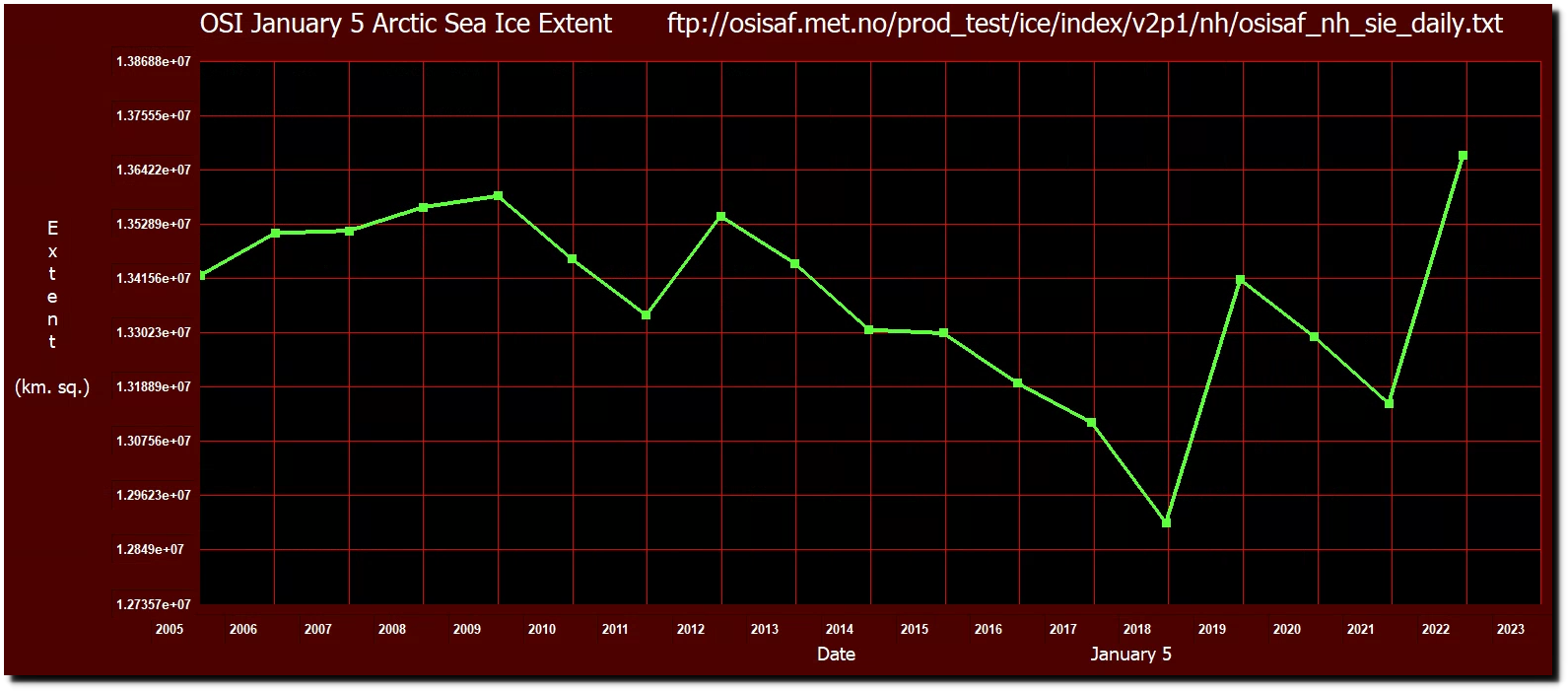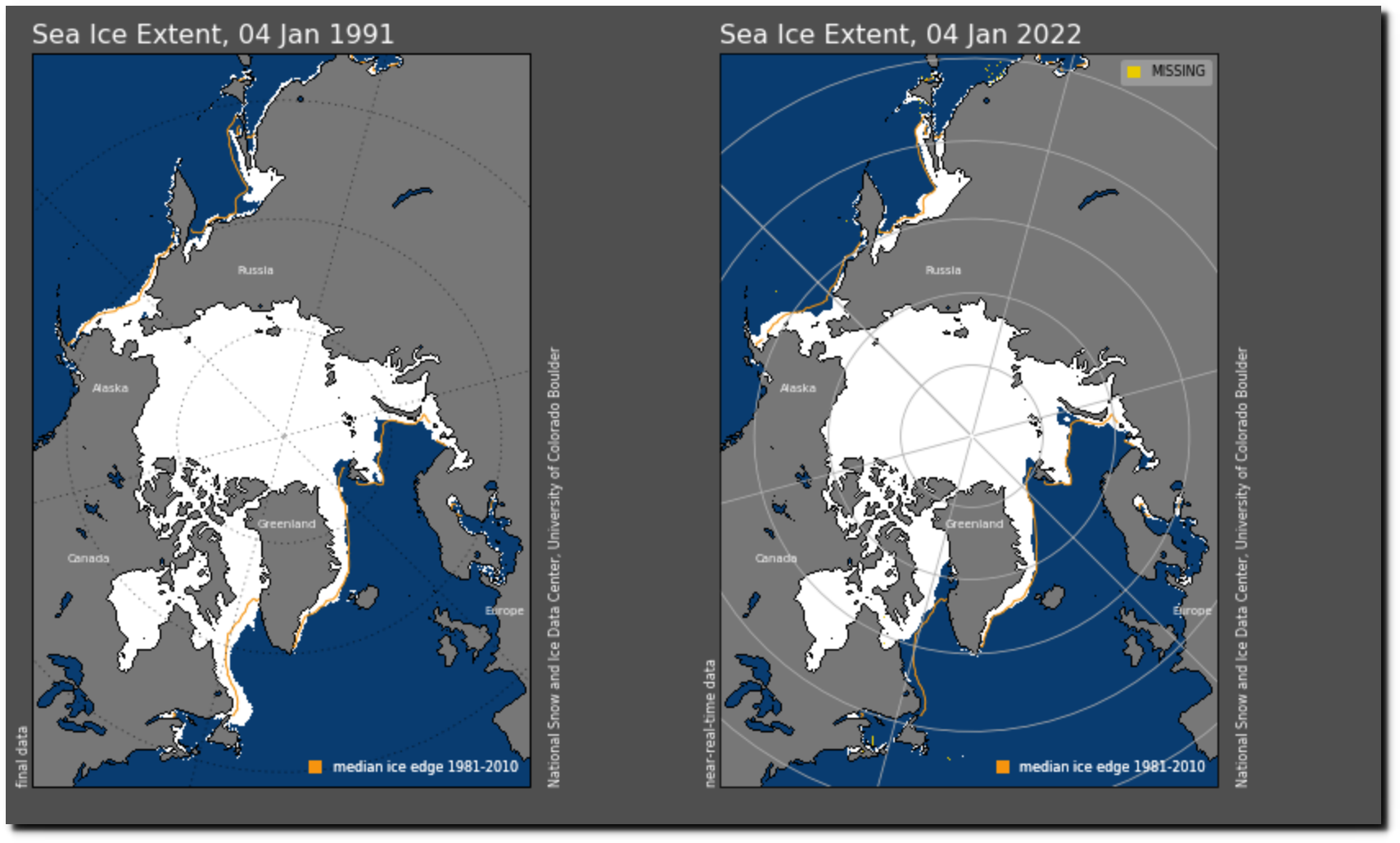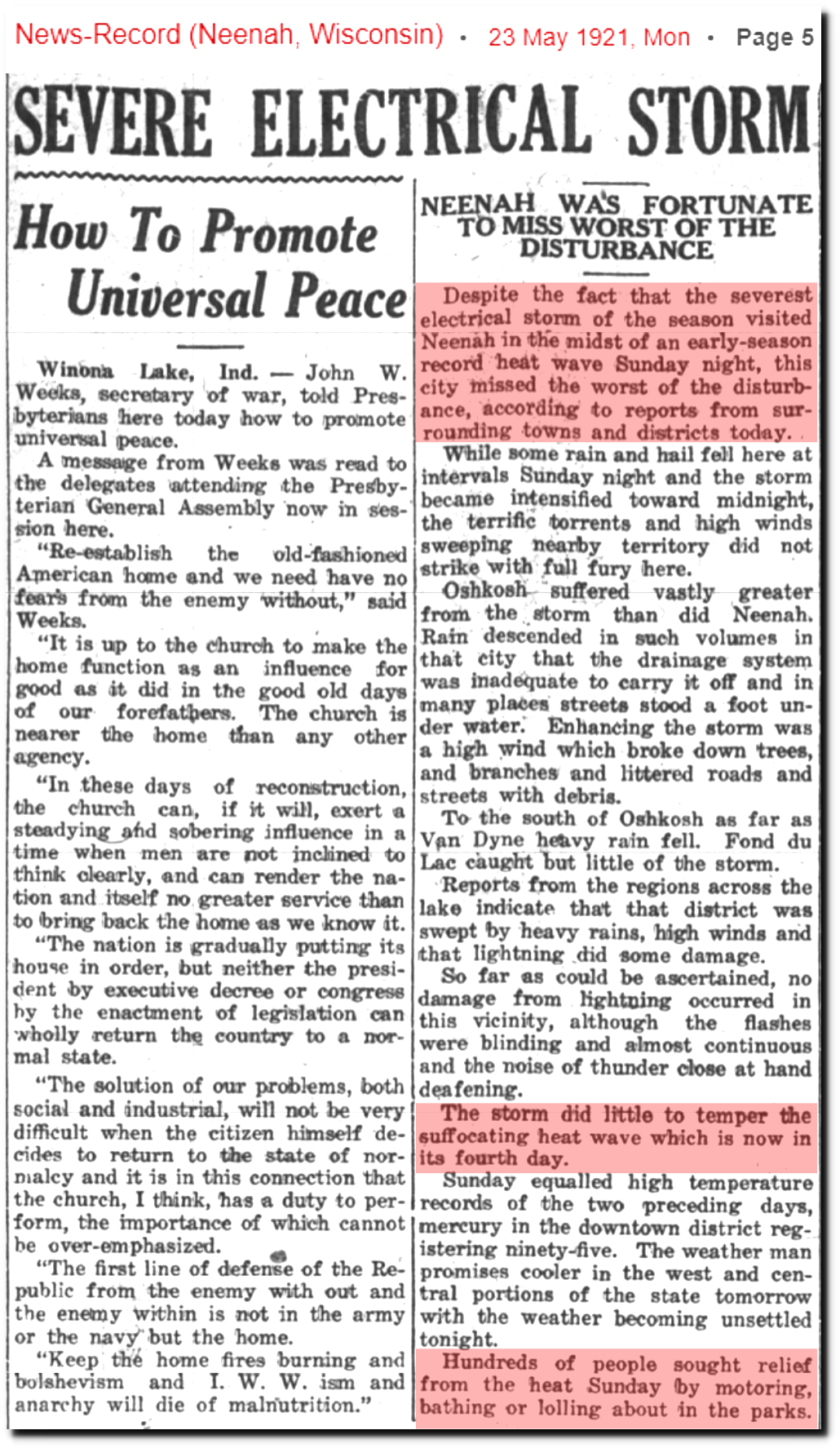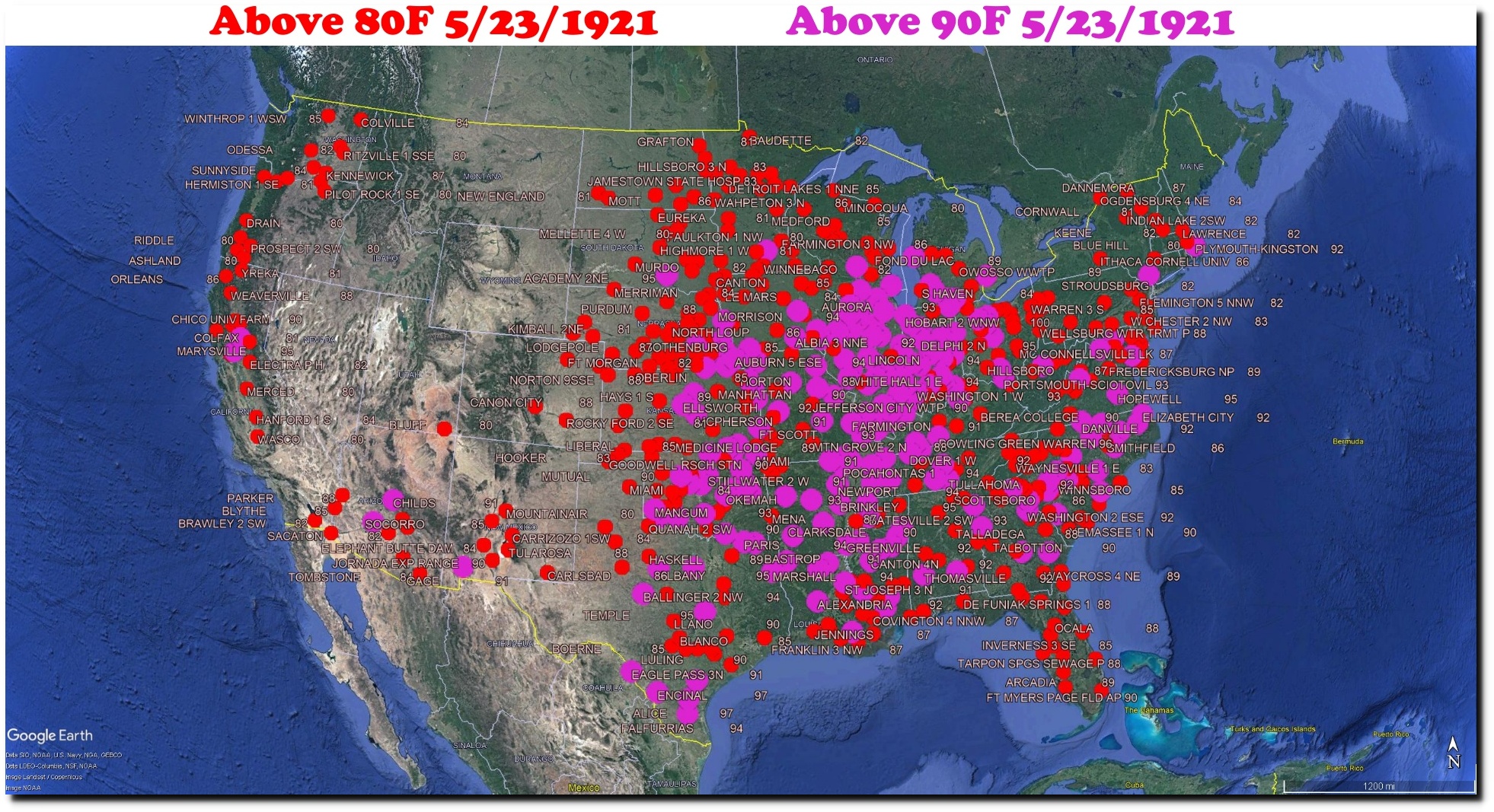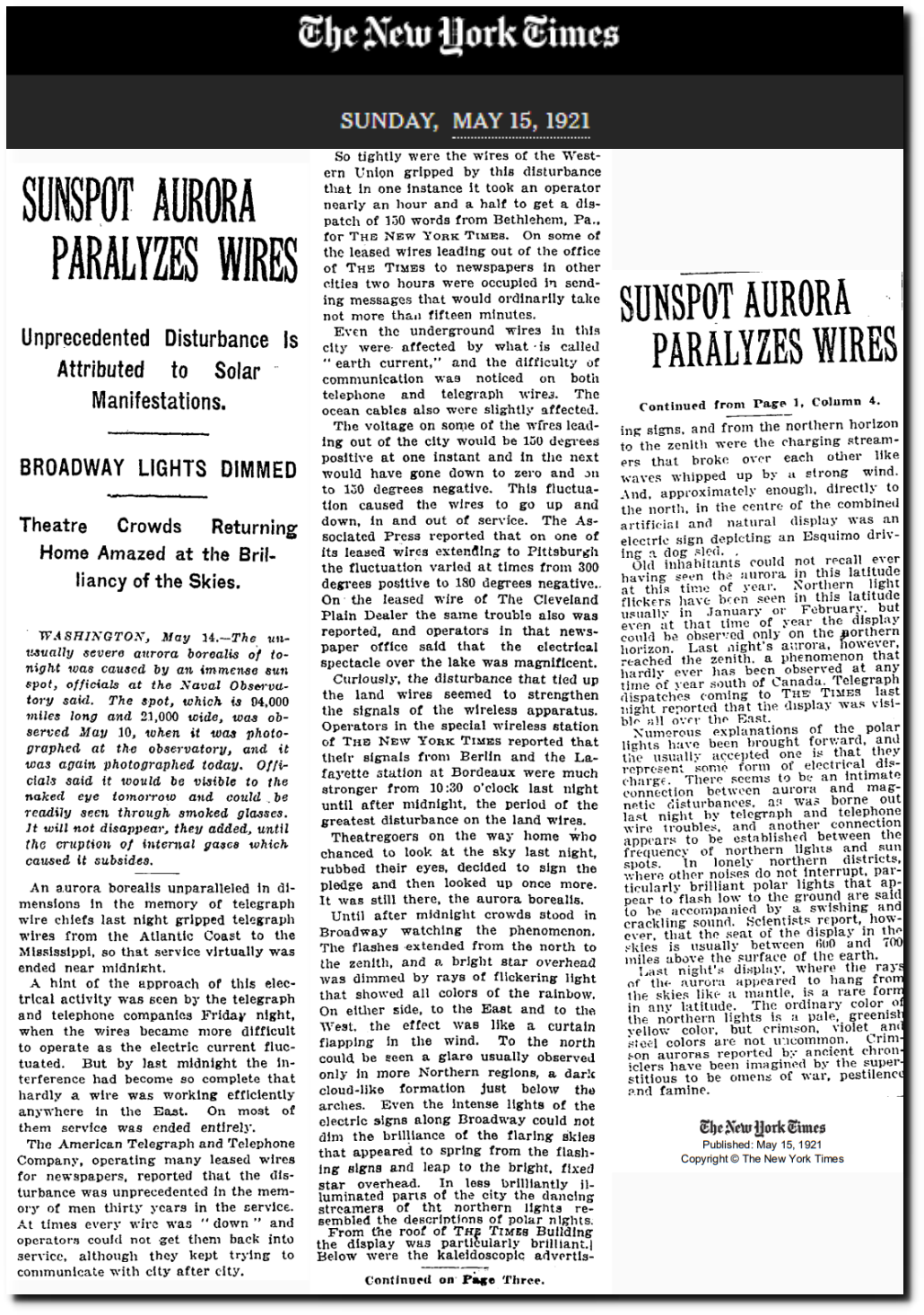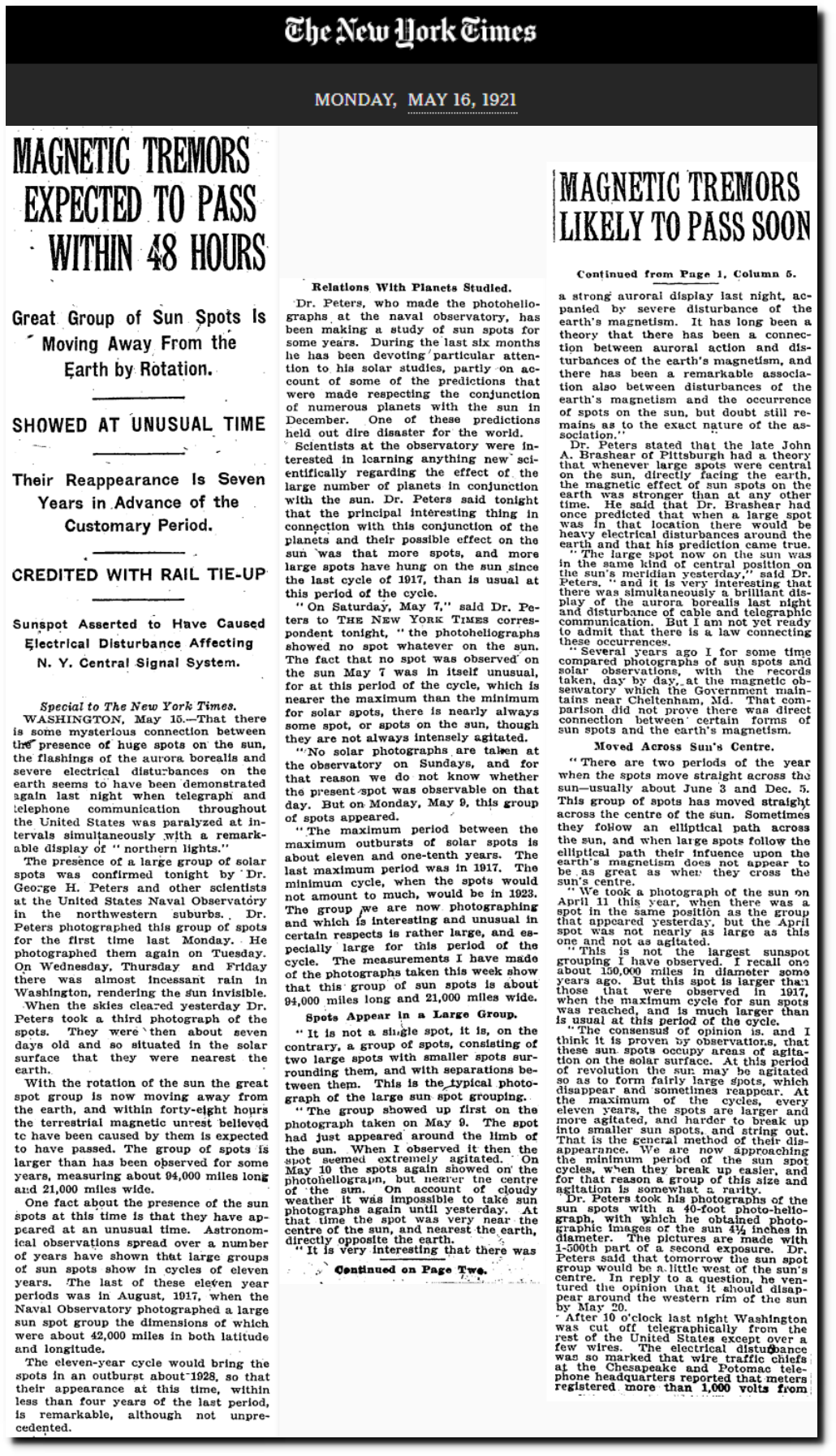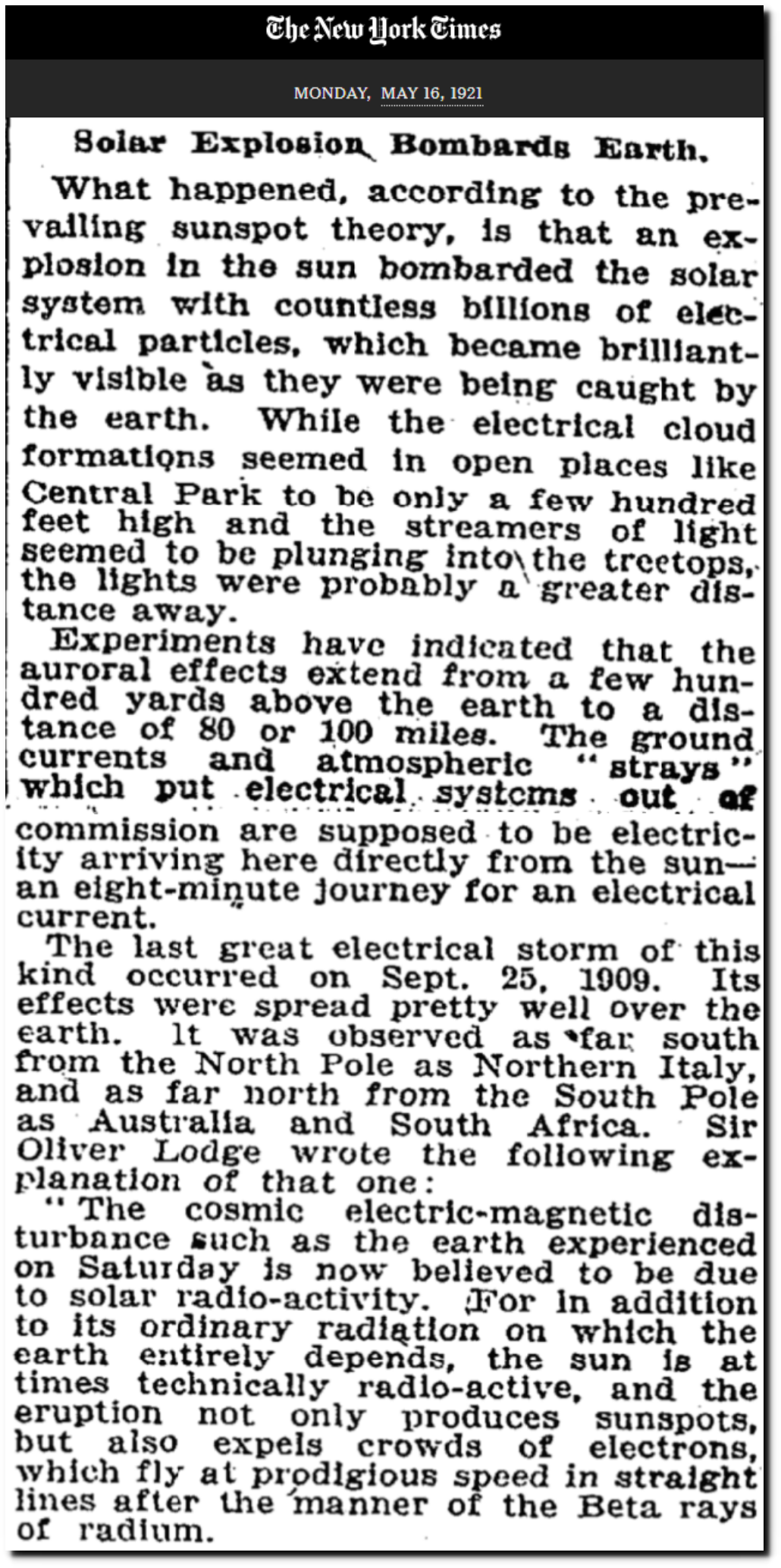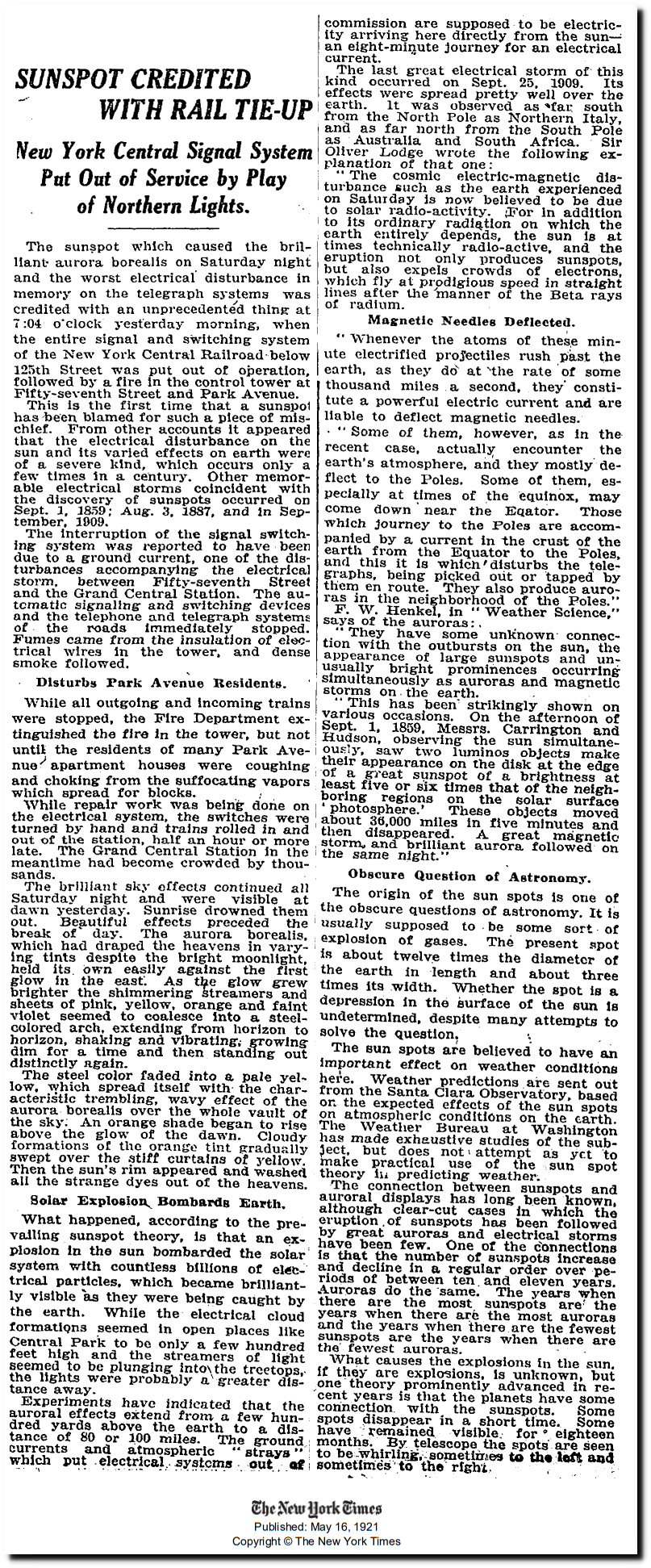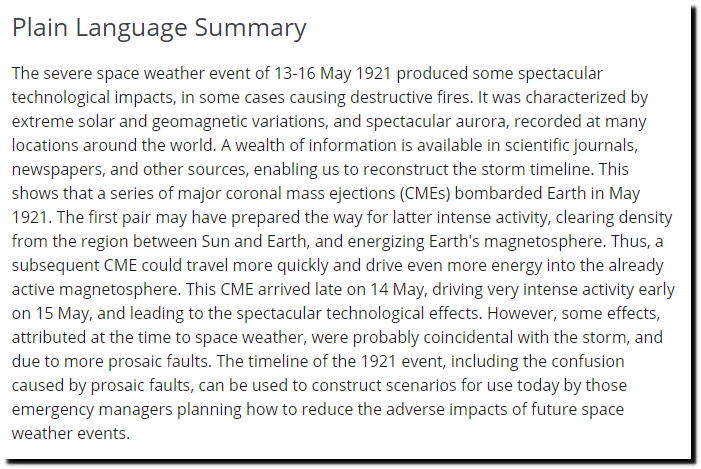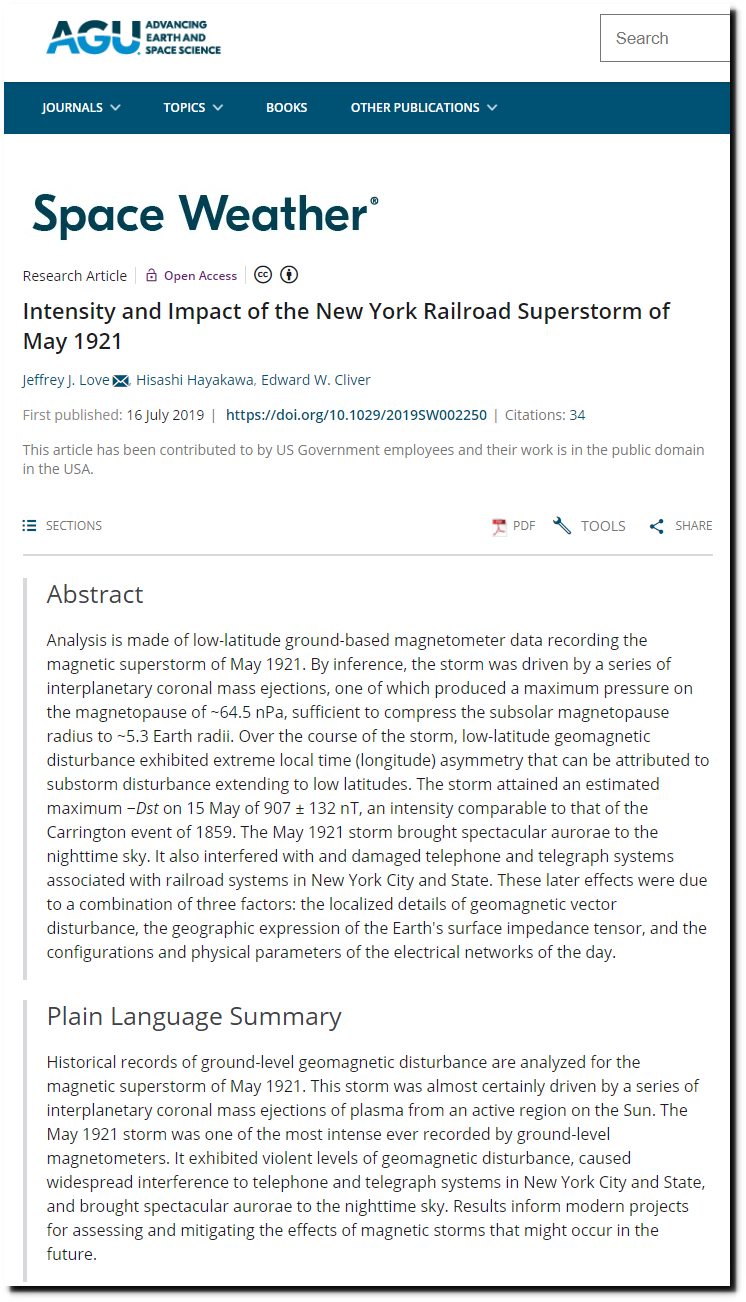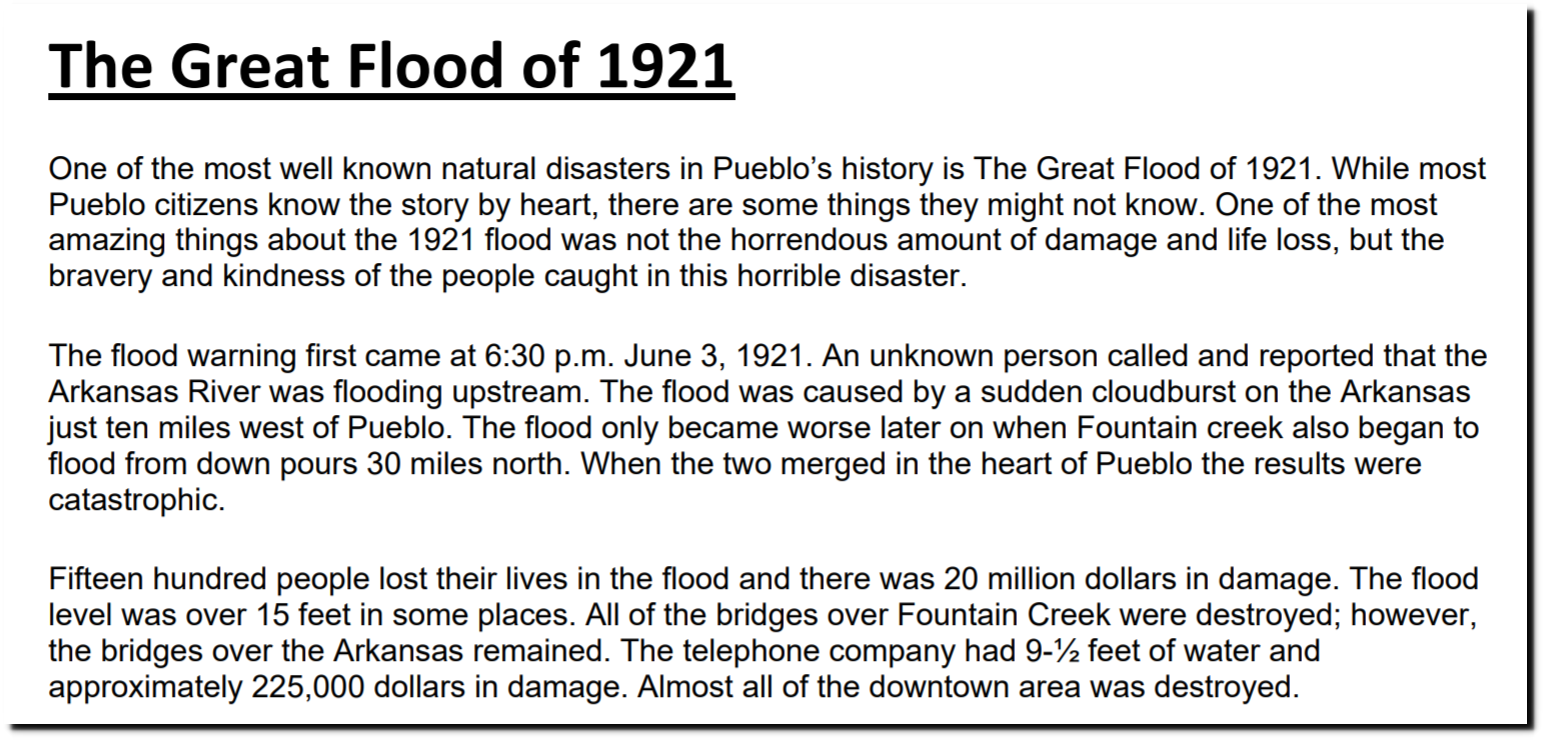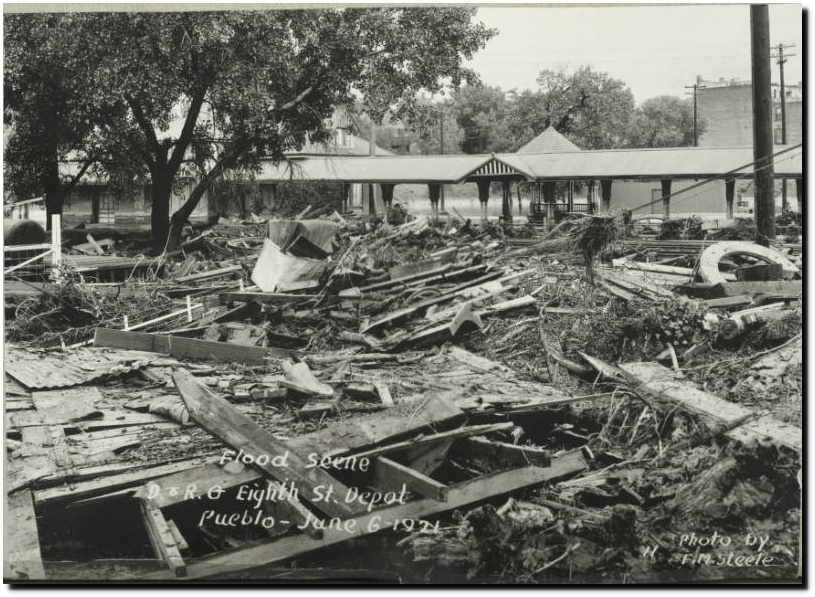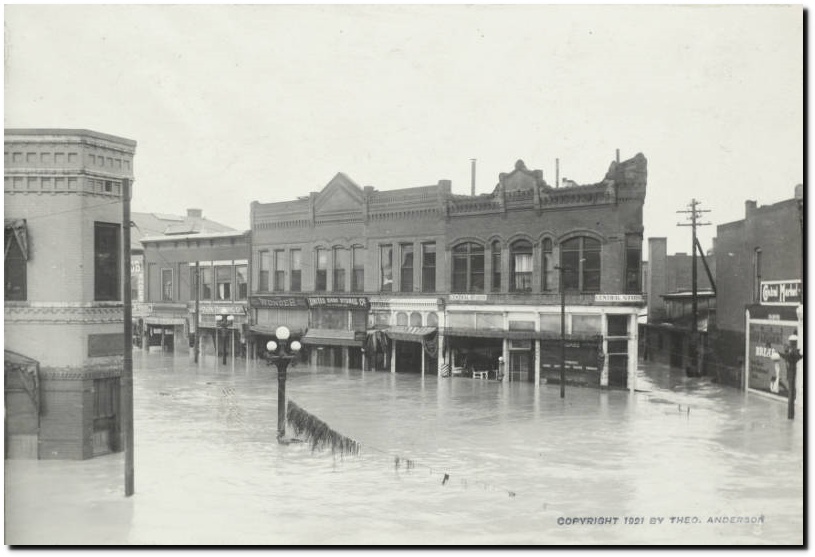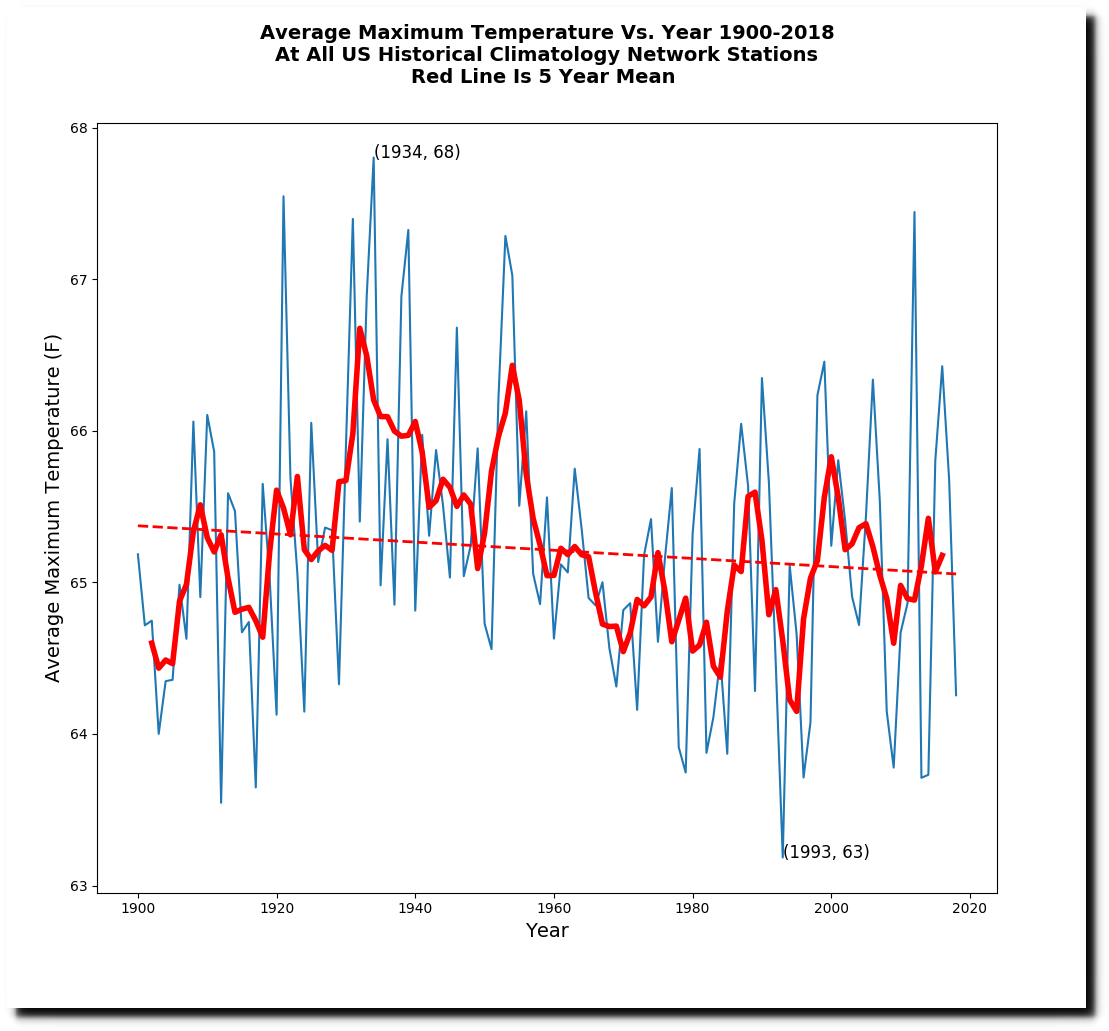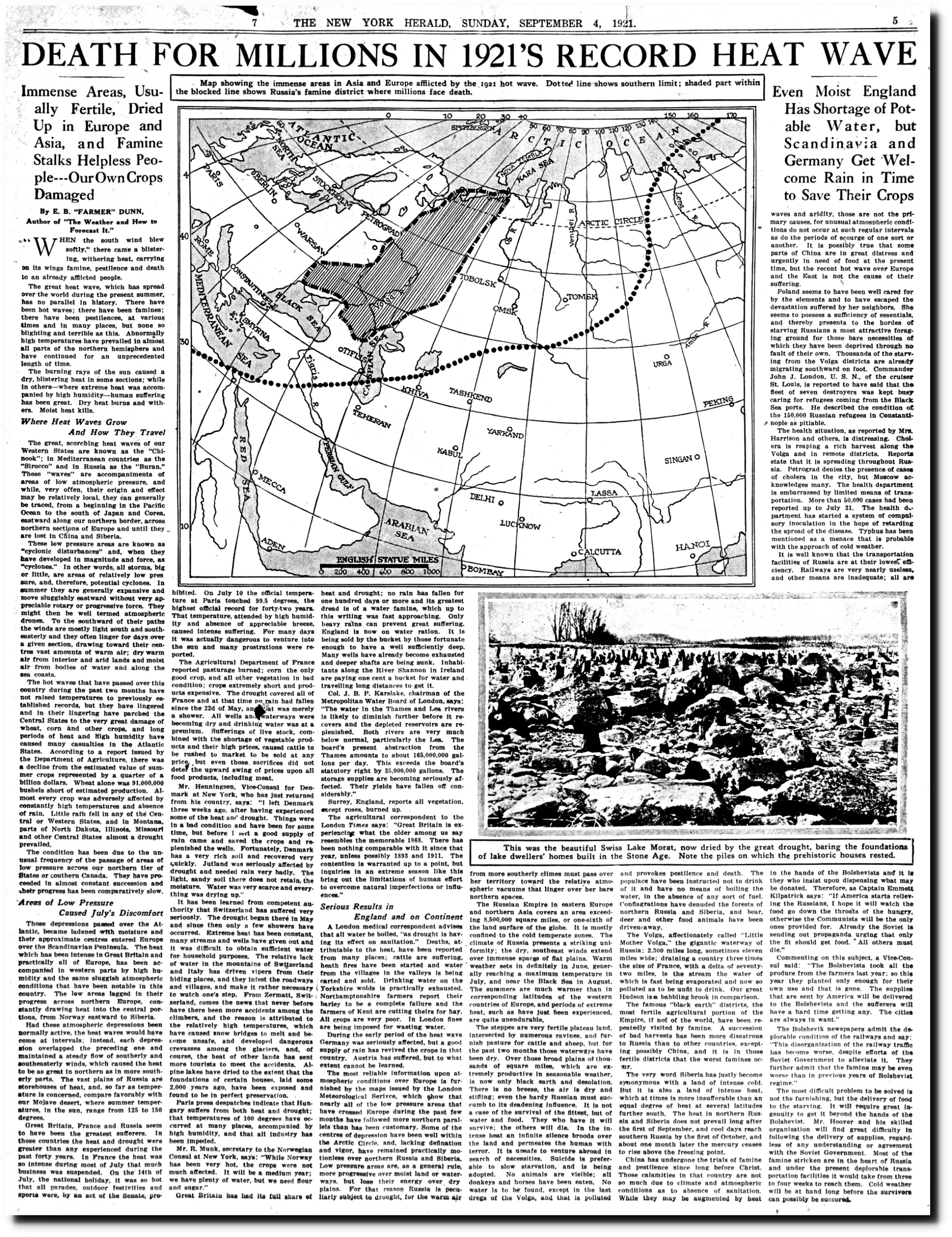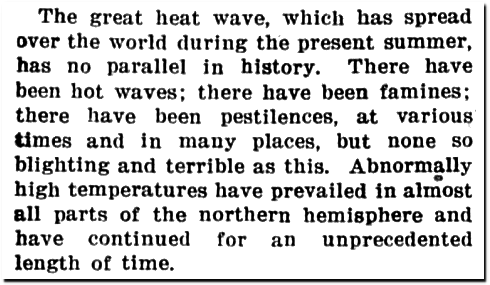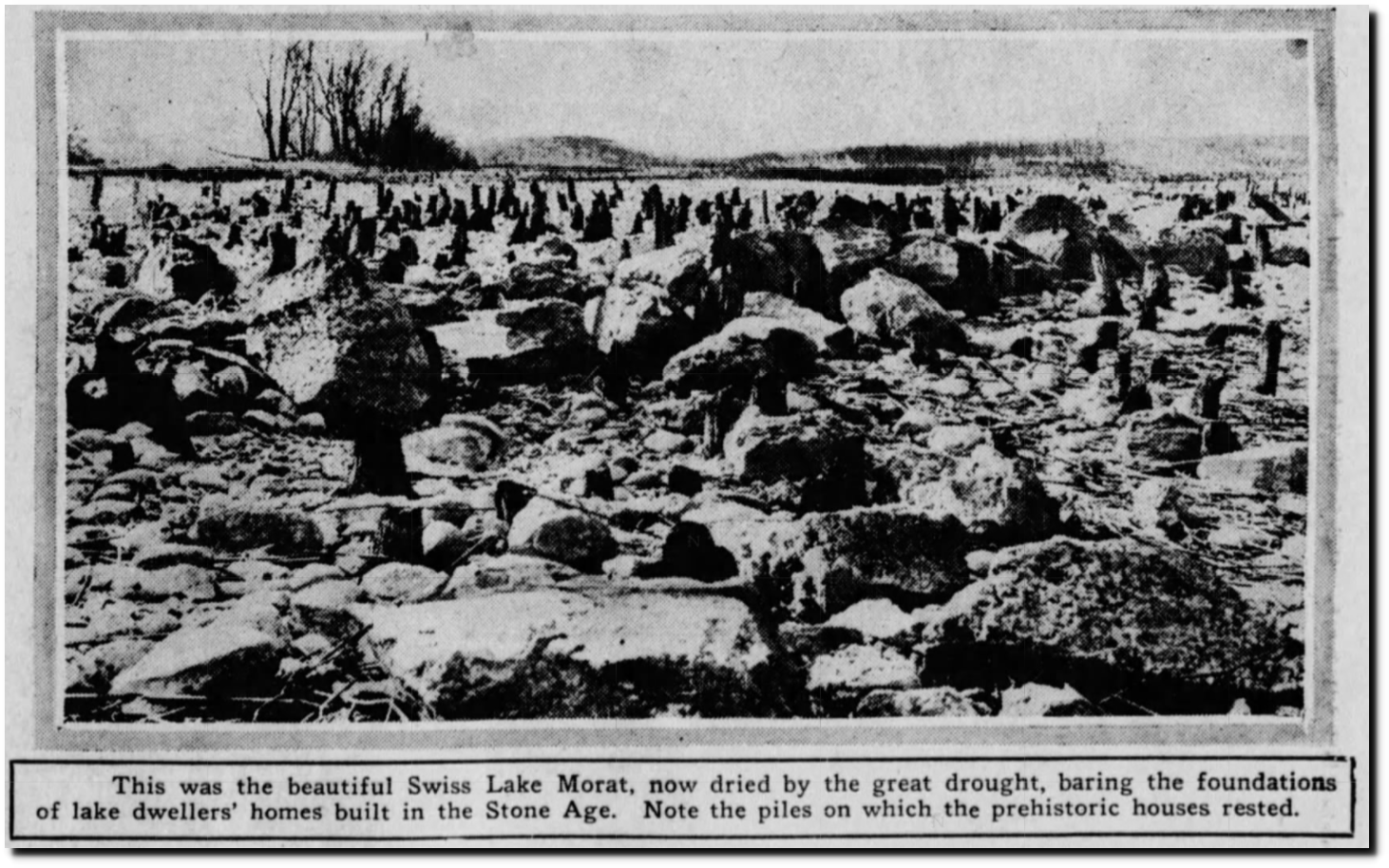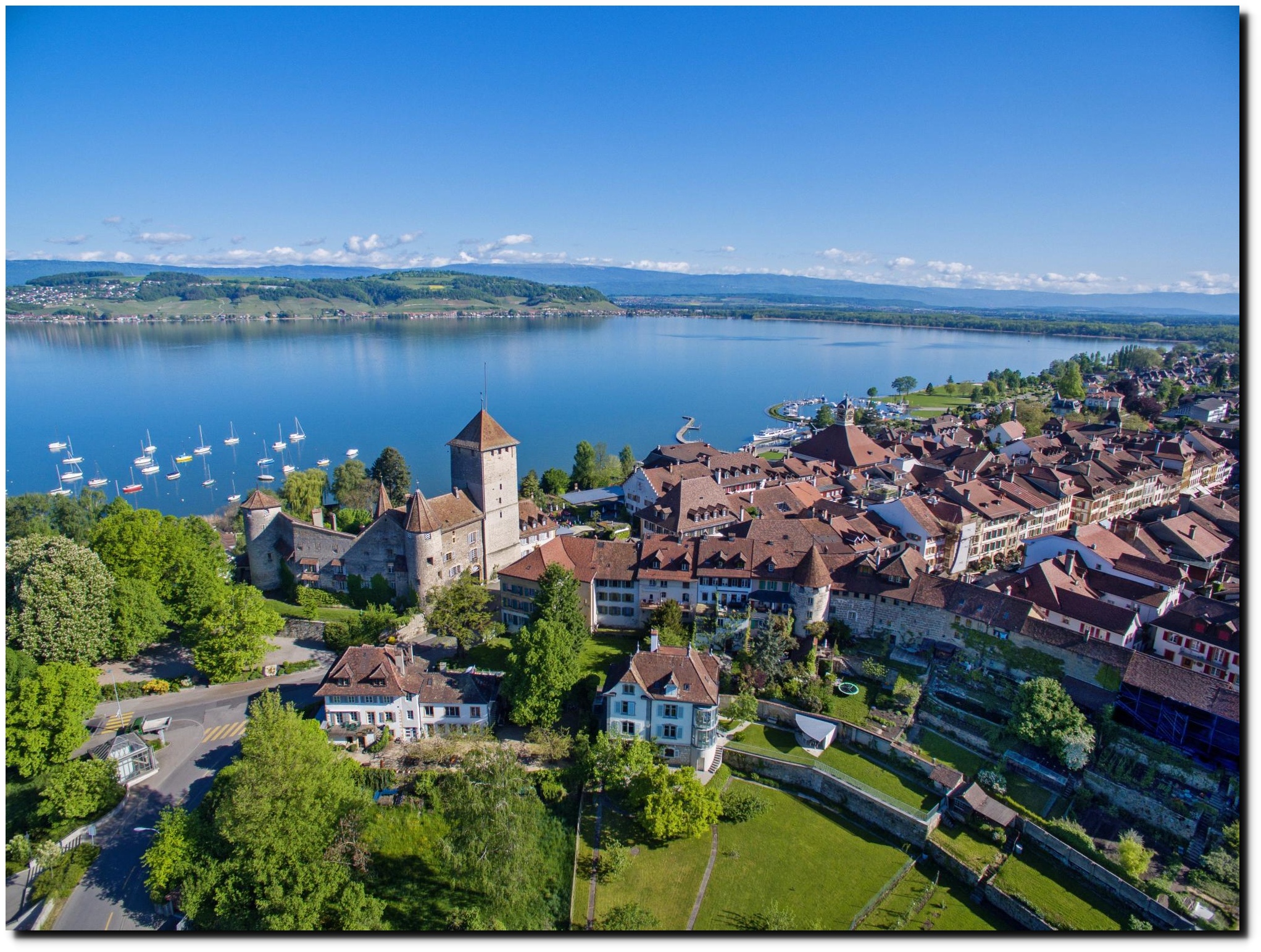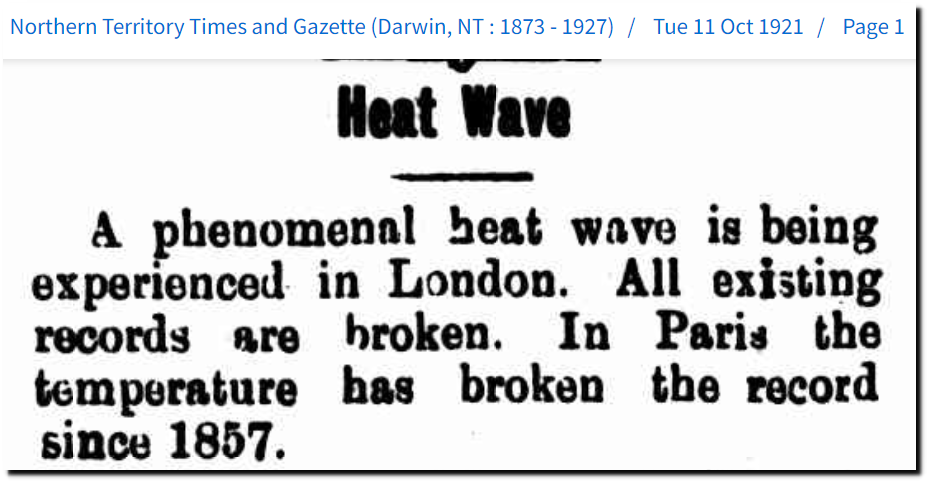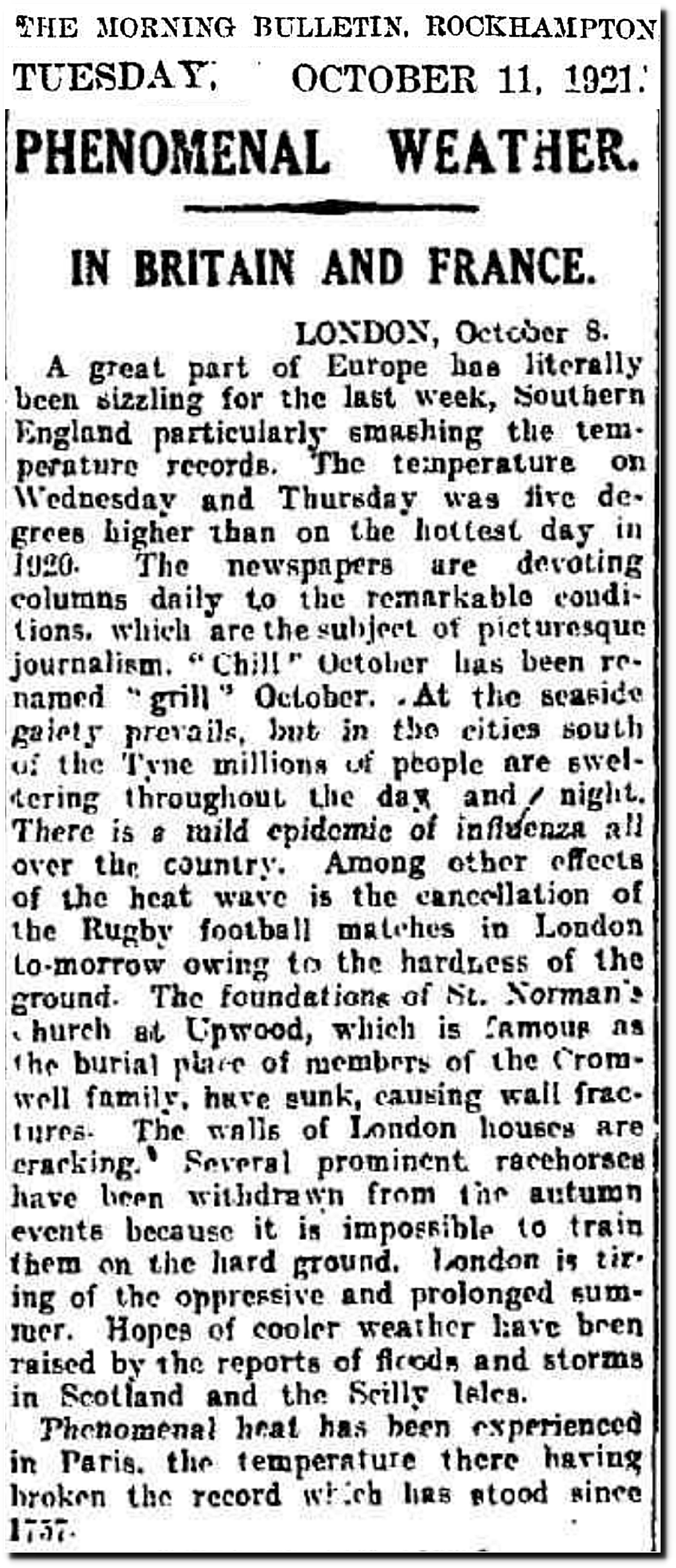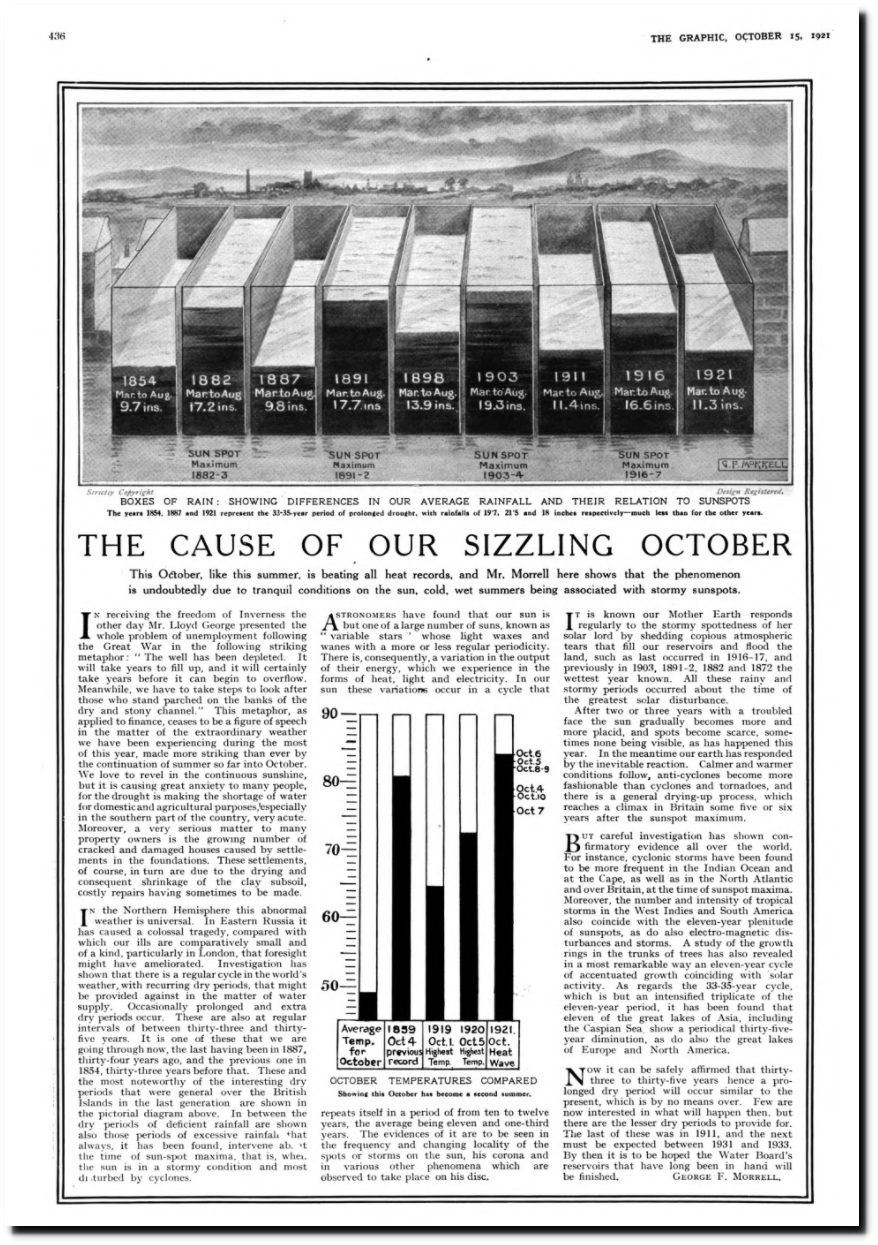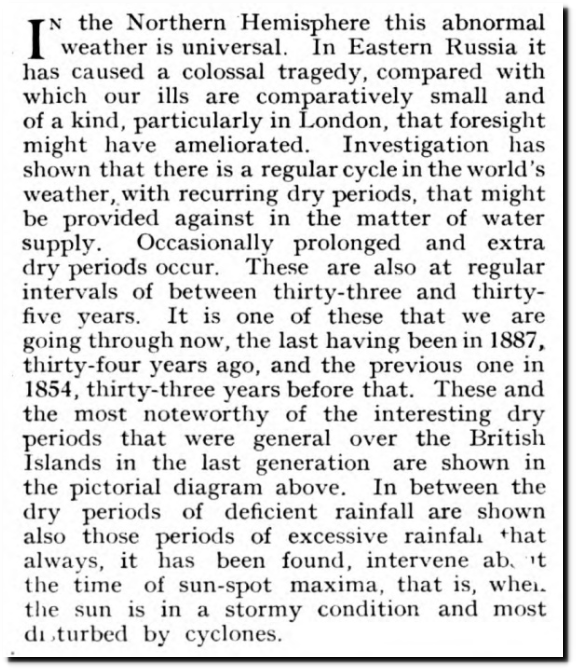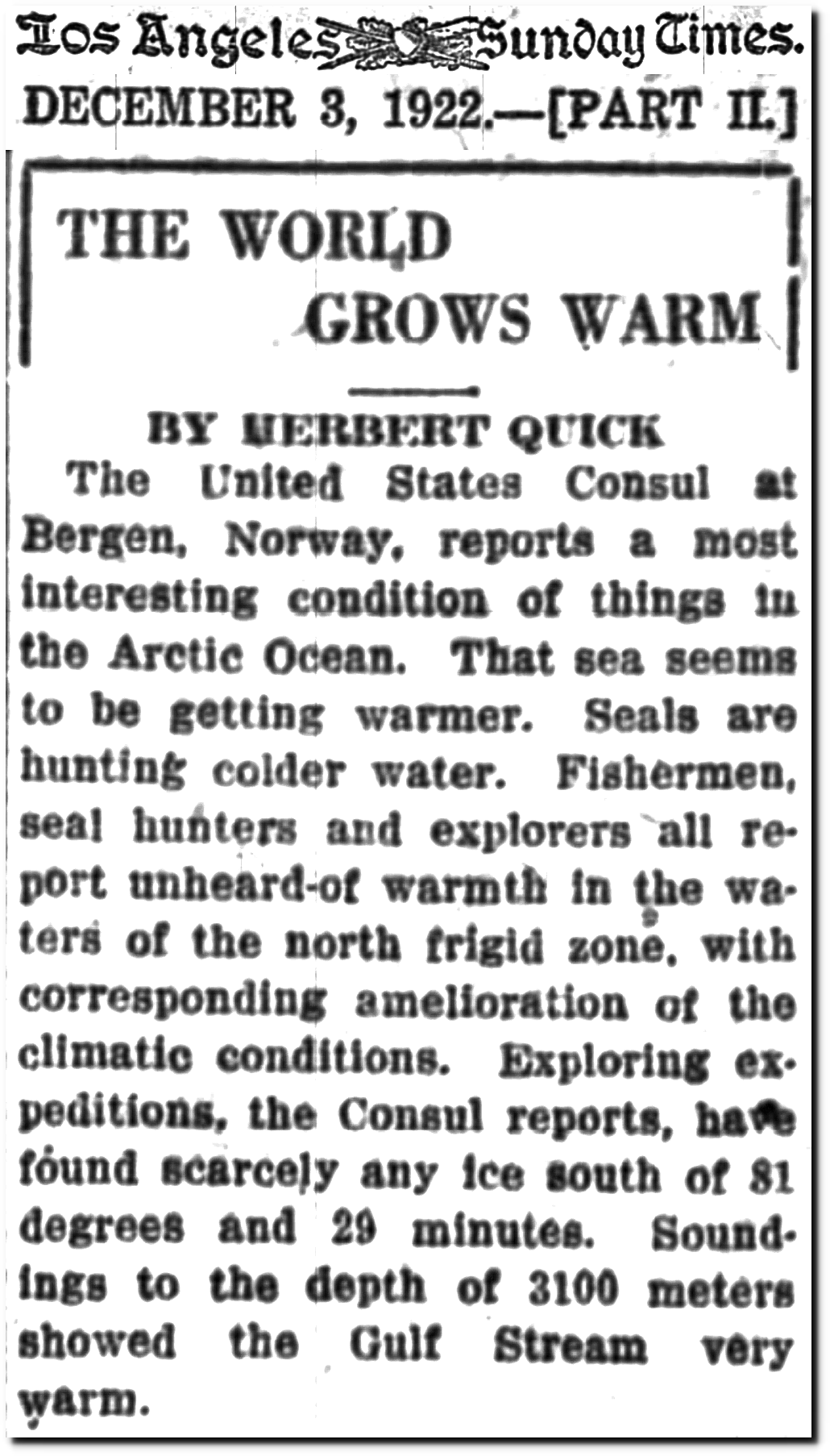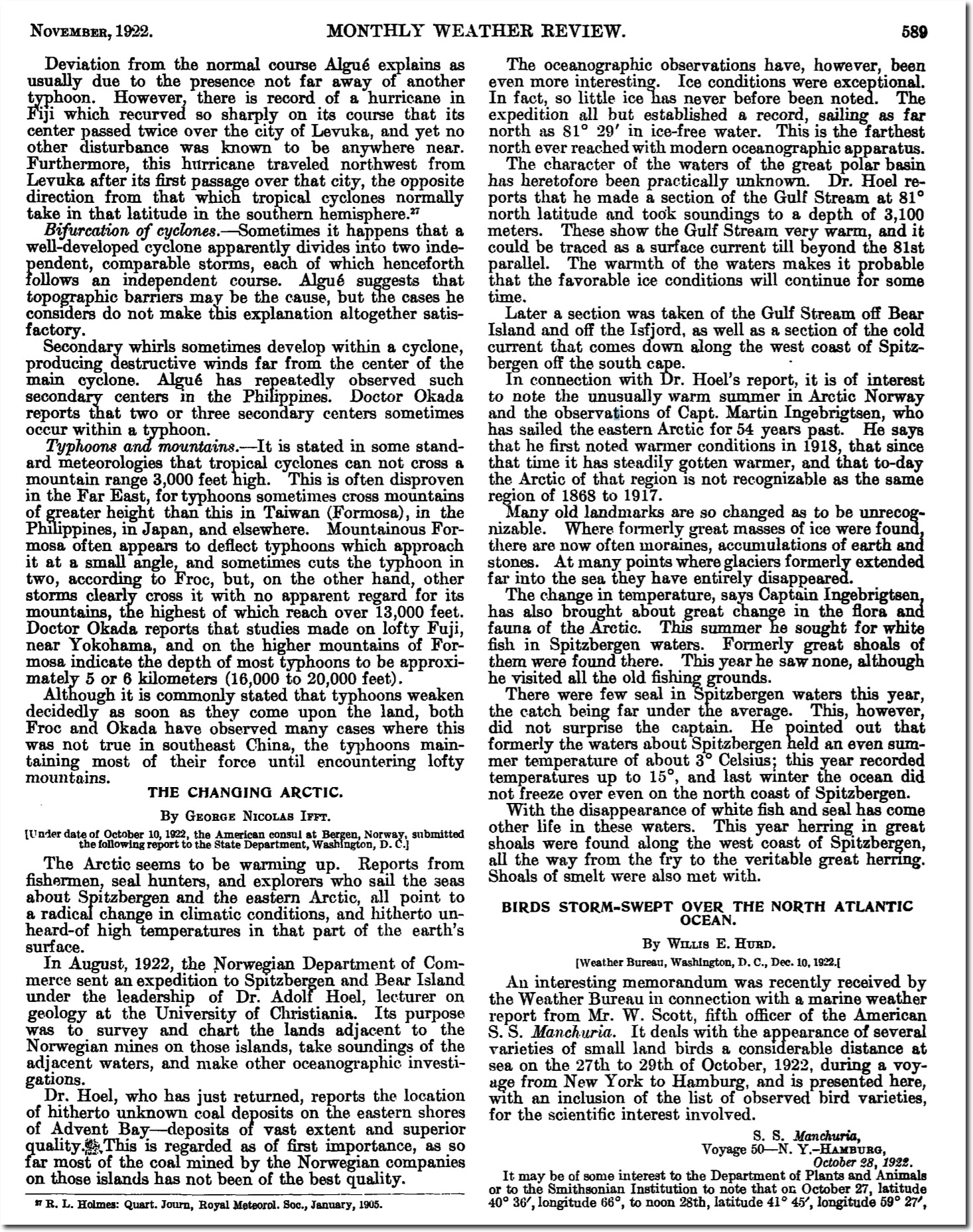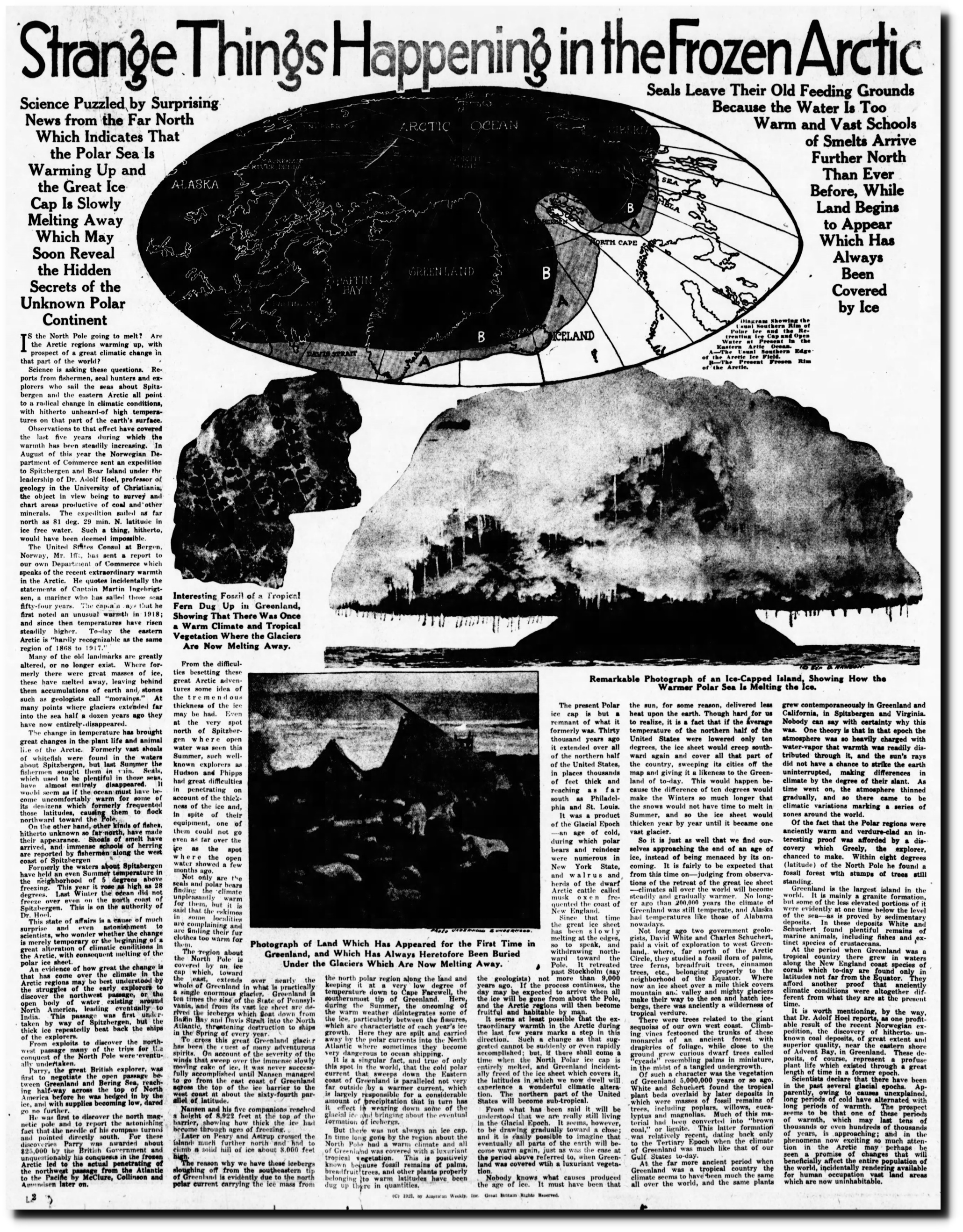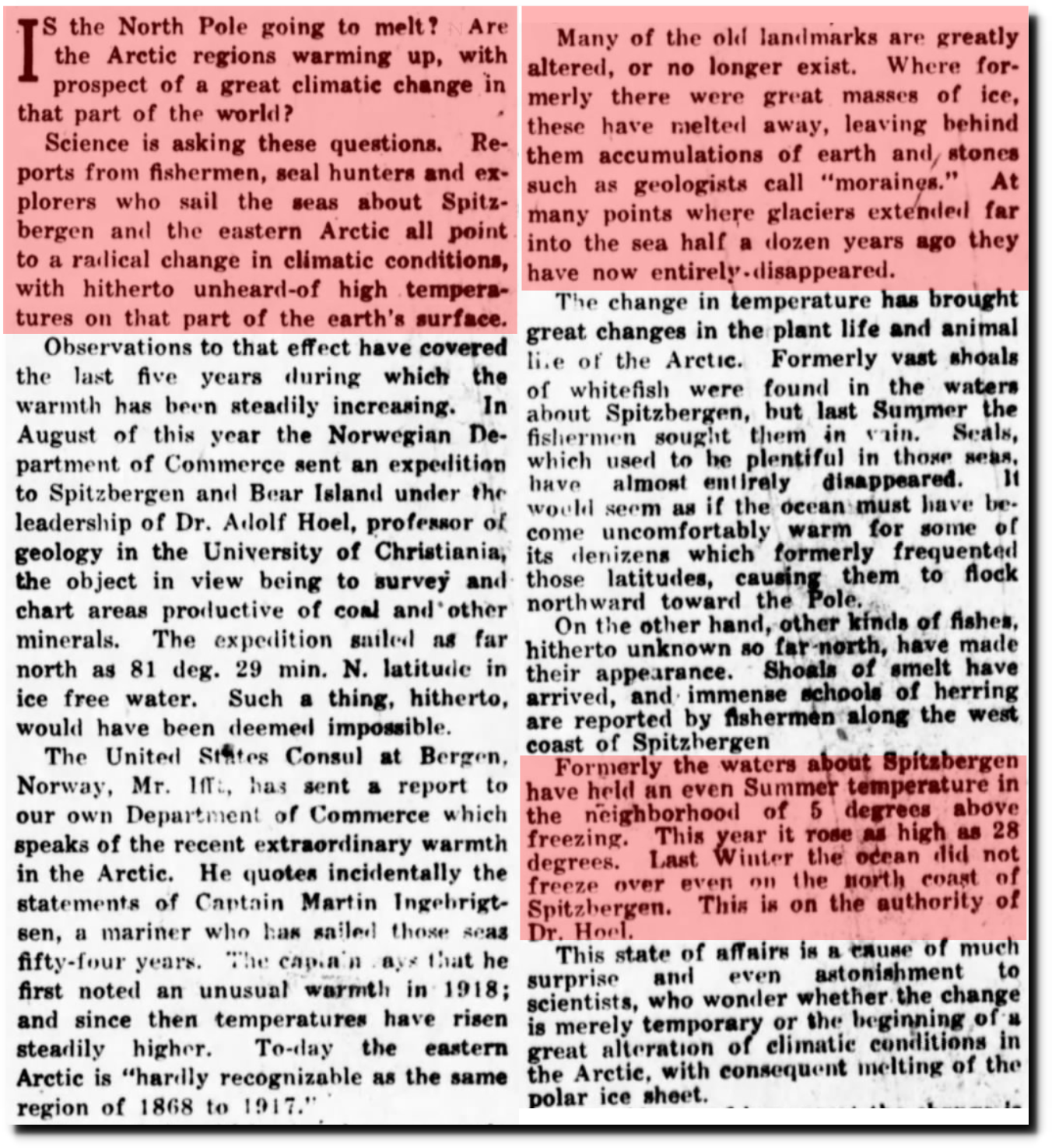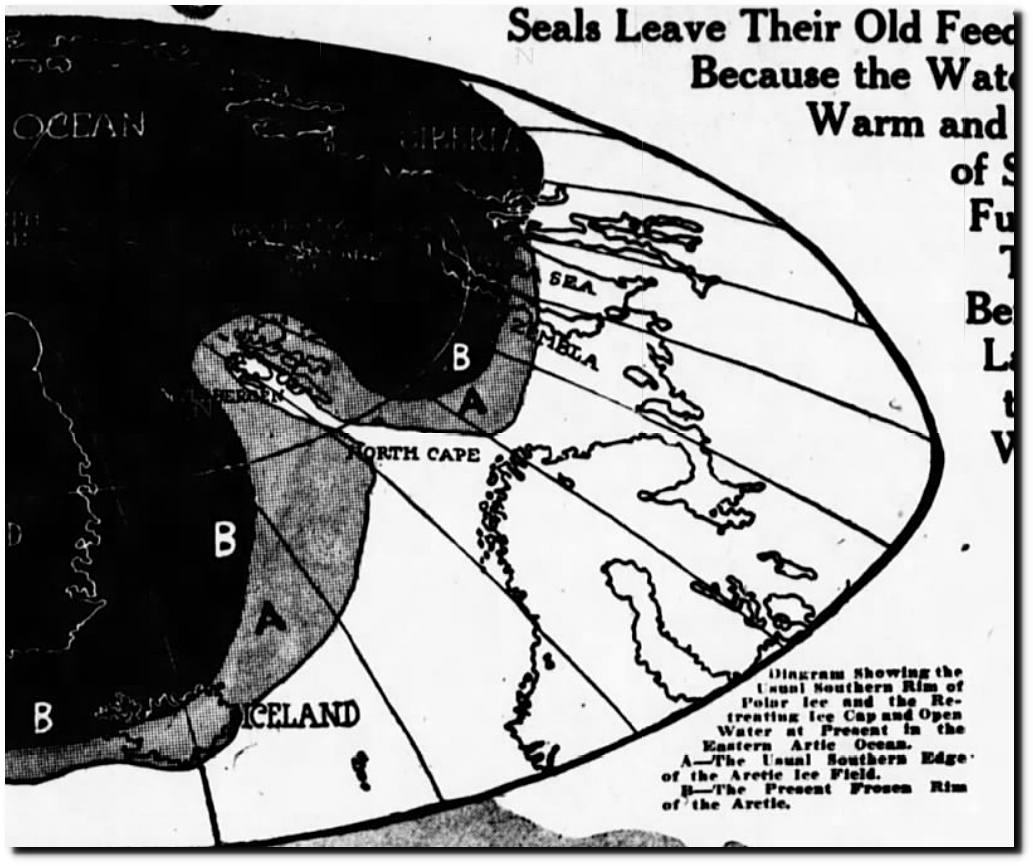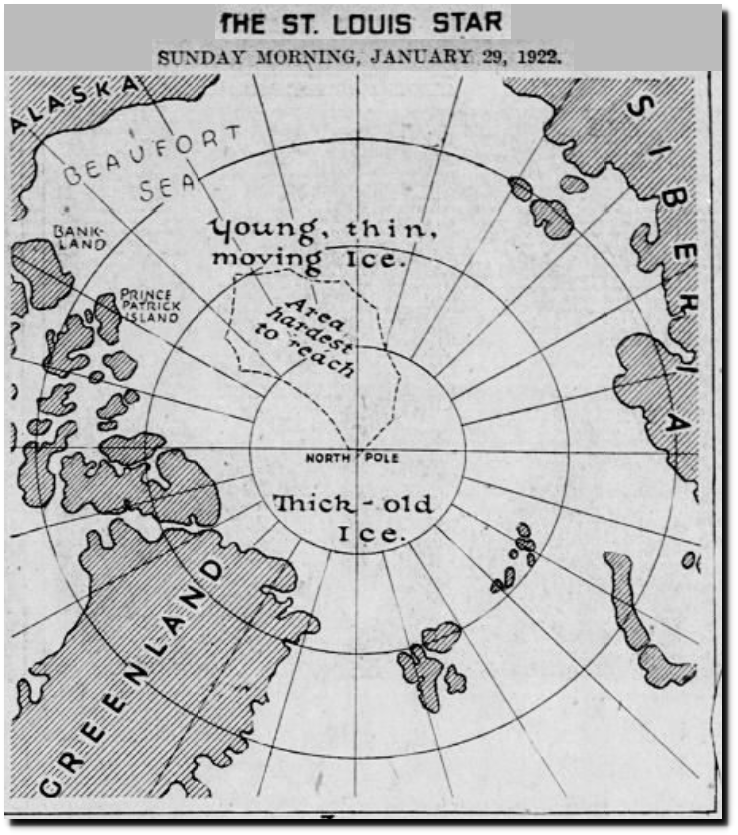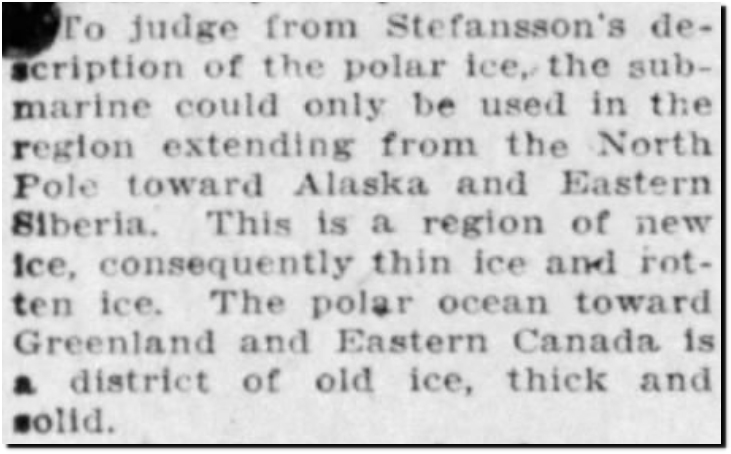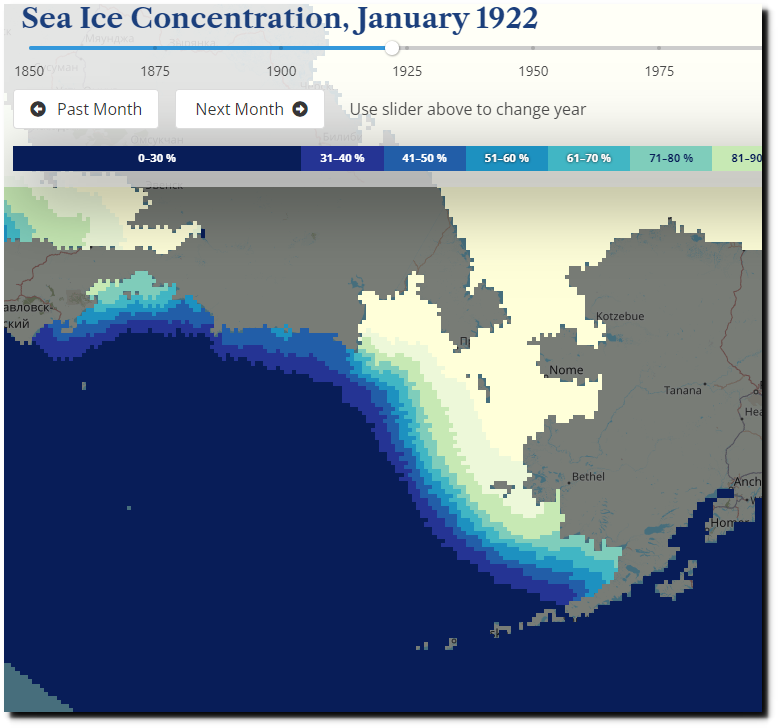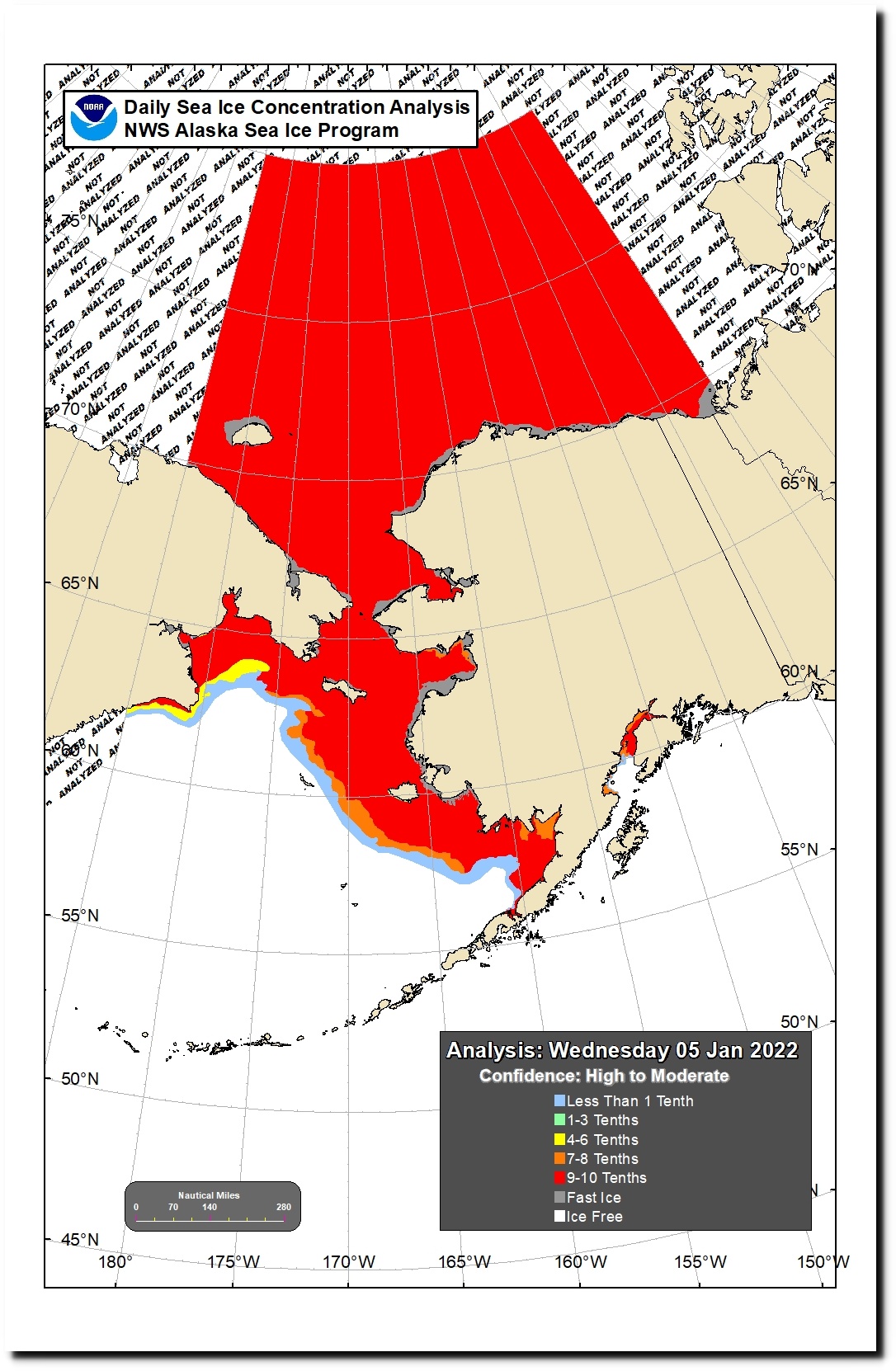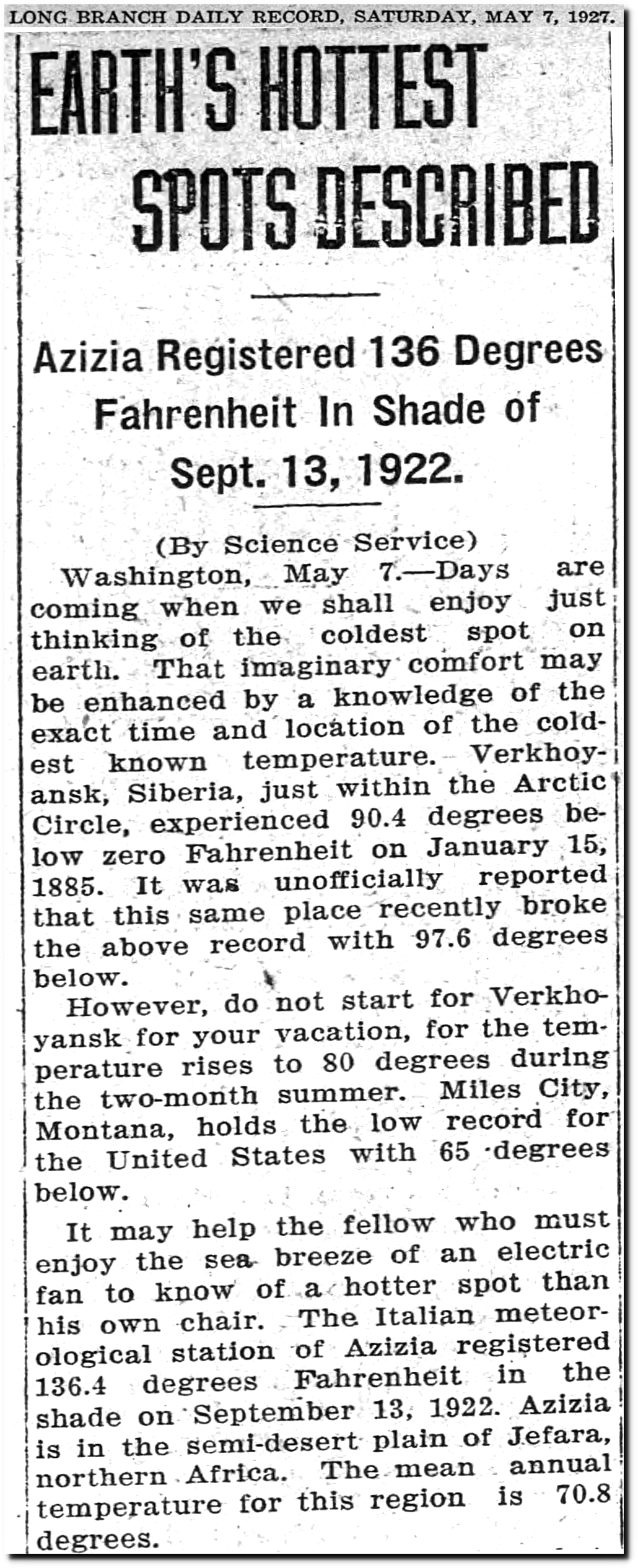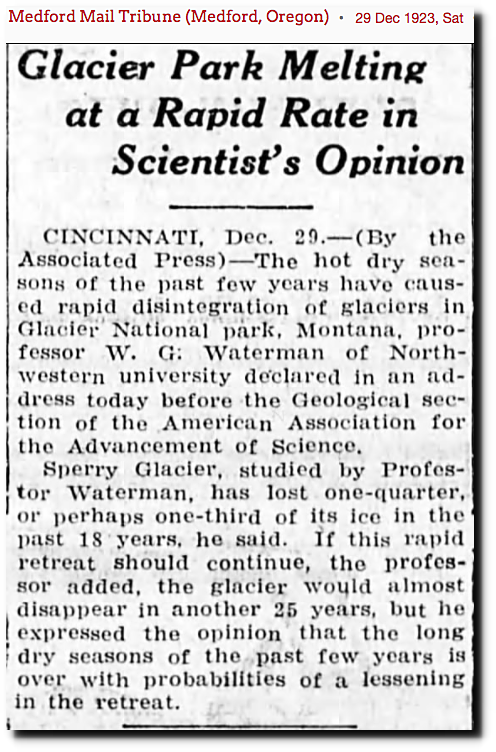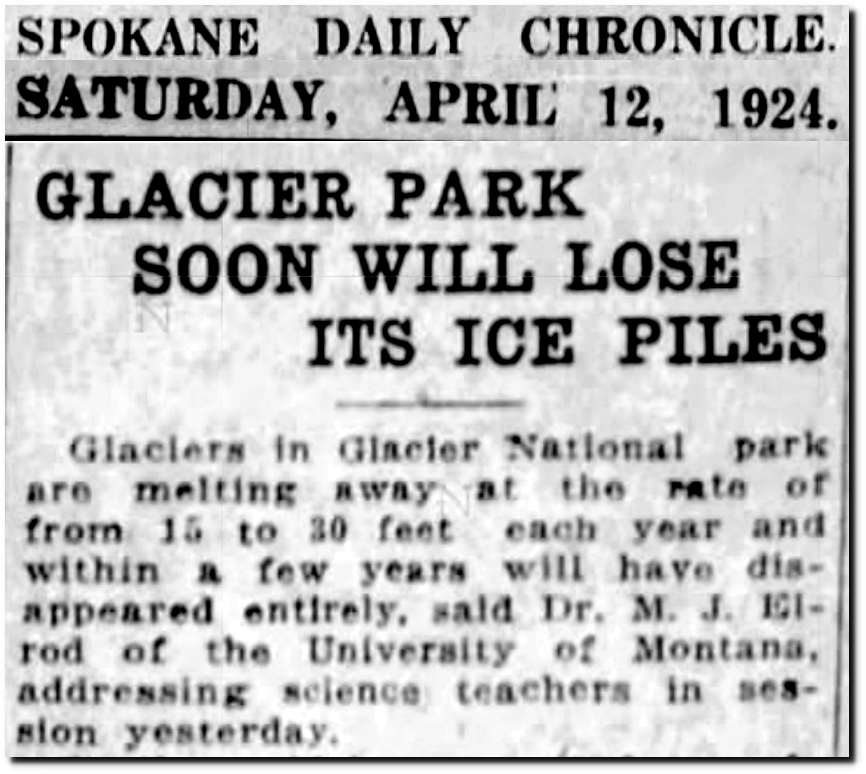Arctic sea ice extent is the highest 18 years, about the same as 1991 and greater than 1922
ftp://osisaf.met.no/prod_test/ice/index/v2p1/nh/osisaf_nh_sie_daily.txt
January 4, 1991 January 4, 2022
During May 1921 there was a massive solar storm which was associated with a worldwide heatwave and drought.
23 May 1921, 5 – News-Record at Newspapers.com
TimesMachine: May 15, 1921 – NYTimes.com
TimesMachine: May 16, 1921 – NYTimes.com
TimesMachine: May 16, 1921 – NYTimes.com
TimesMachine: May 16, 1921 – NYTimes.com
15 May 1921, 55 – The San Francisco Examiner at Newspapers.com
Pueblo, Colorado was largely wiped out by a flood during June, 1921. Much of Kansas suffered damage, and there was flooding on the Pecos River in New Mexico and Texas.
06 Jun 1921, 1 – The Arkansas City Daily News at Newspapers.com
It is estimated that 1,500 people in Pueblo, Colorado died during that flood.
The average maximum temperature in the US during 1921 was second highest on record after 1934.
04 Sep 1921, 61 – New York Herald at Newspapers.com
Switzerland’s Lake Morat dried up.
04 Sep 1921, 61 – New York Herald at Newspapers.com
This is what Lake Morat looks like now.
11 Oct 1921 – Heat Wave – Trove
11 Oct 1921 – PHENOMENAL WEATHER. – Trove
The heat was blamed on sunspots
#448 – The Graphic : an illustrated weekly newspaper. … v.104 (Jul.-Dec.1921)
One hundred years ago the LA Times reported on unheard-of-warmth in the Arctic.
03 Dec 1922, 20 – The Los Angeles Times at Newspapers.com
This came from a US Weather Bureau article.
The Arctic seems to be warming up. Reports from fishermen, seal hunters, and explorers who sail the seas about Spitsbergen and the eastern Arctic, all point to a radical change in climatic conditions, and hitherto un-heard-of high temperatures in that part of the earth’s surface.
He says that he first noted warmer conditions in 1918, that since that time it has steadily gotten warmer, and that to-day the Arctic of that region is not recognizable as the same region of 1868 to 1917. Many old landmarks are so changed as to be unrecognizable. Where formerly great masses of ice were found, there are now often moraines, accumulations of earth and stones. At many points where glaciers formerly extended far into the sea they have entirely disappeared.
so little ice has never before been noted. The expedition all but established a record, sailing as far north as 81° 29? in ice-free water. This is the farthest north ever reached with modern oceanographic apparatus.
formerly the waters about Spitzbergen held an even summer temperature of about 3 Celsius this year recorded temperatures up to 15°, and last winter the ocean did not freeze over even on the north coast of Spitzbergen
ftp://ftp.library.noaa.gov/docs.lib/htdocs/rescue/mwr/064/mwr-064-02-c1.pdf
03 Dec 1922, Page 63 – The Washington Times at Newspapers.com
Earlier in 1922, explorer Stefansson reported the ice between the North Pole and Alaska was young, thin, rotten, moving ice.
29 Jan 1922, Page 35 – The St. Louis Star and Times at Newspapers.com
The University of Alaska sea ice atlas shows there is about as much ice now as there was 100 years ago in the western Arctic.
Libya reached 136 degrees in 1922 – which was the official world’s record until recently when the Ministry of Truth erased it.
07 May 1927, 10 – The Daily Record at Newspapers.com

